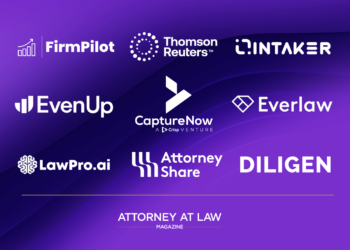A Good Lawyer Knows the Law. A Great Lawyer Knows the Judge.
That old adage is correct. High-priced lawyers have been decimated by local, small firm lawyers more times than could be counted. Why? Because the local lawyers have been in front of the judge presiding over the case a hundred times. They know what the judge will allow and dismiss as evidence. They know the judge’s preferences when it comes to factors like expert witnesses.
The same holds true for BigLaw attorneys in major cities. They belong to the same country clubs as the judges. Their firm appears before them regularly. They document every outcome.
That knowledge has always given the local and/or BigLaw lawyers an immeasurable advantage.
Until now.
Enter Lex Machina, the great equalizer.
Lex Machina users can enter the name of a judge and find every ruling they’ve ever made on a case like theirs. For example, if an oil company has been accused of dumping toxic waste into a Louisiana bayou, which resulted in the death of thousands of pelicans, Lex Machina can tell attorneys every ruling the soon-to-be presiding judge has ever made on a similar case.
It can also tell which law firms have been most successful in such cases in front of that judge, what kind of evidence the judge has admitted or dismissed, and even which expert witnesses have been most successful. Thousands of hours of research are completed with the push of a button.
I asked Aria Nejad, their in-house counsel, how all of this is accomplished.
“Lex Machina helps lawyers and corporate counsel formulate their trial strategy by providing insights into their particular judge, court, opposing counsel, and past cases like theirs. The platform uses machine learning algorithms to analyze data from millions of federal and state court cases, including information on judges, parties, law firms and outcomes.
“Using Lex Machina, lawyers and corporate counsel can gain a better understanding of how specific judges have ruled in similar cases in the past. This can help them develop a more effective trial strategy by tailoring their arguments and evidence to the particular judge’s preferences.
“Additionally, Lex Machina provides information on opposing counsel and their litigation history, enabling lawyers and corporate counsel to anticipate their opponent’s moves and respond more effectively. The platform also allows users to analyze the success rates of different law firms and attorneys, providing insights into which ones are most effective in specific areas of law or jurisdictions.”
Mr. Nejad continued.
“Lex Machina also provides valuable outcome analytics, which provides crucial data-driven insights on timing, findings, resolutions and damages. This allows attorneys to anticipate how long a case could take and what are the likely outcomes, which is valuable both in terms of crafting successful litigation strategies and also accurately advising the client and managing their expectations.”
In other words, everything an attorney needs to know about the judge and opposing counsel, as well as helping in-house counsel figure out if they should just settle and if not, whether the $500 an hour lawyers are actually better suited for the case than the $1,500 BigLaw lawyers.
Bob explained that the AI doesn’t stop at judges and lawyers. It even helps with expert witness selection!
“One of Lex Machina’s Quick Tools is the Expert Witness Explorer, which lets users explore rulings on the admissibility of expert witness testimony and reports in product liability and torts cases. By entering the name of an expert witness, the user can immediately view their admissibility record, which judges ruled on their admissibility, top parties who retained the expert, and all relevant admissibility orders. Searching by judge or court provides analytics on the admissibility of expert witnesses, top witnesses, and top parties moving to retain.”
A good attorney knows the law. A great attorney knows the judge. A modern attorney knows Lex Machina.
Frederick’s Crystal Ball
Lex Machina or a competitor will continue to evolve until AI will be able to calculate whether a general counsel should pursue a trial strategy at all, or whether settling is the more cost-effective remedy. If settlement, the AI will act like an actuary that does a predictive analysis and determines the minimum and maximum ranges for settlements.
If trial is the best strategy, the AI will take into consideration the facts, precedents, judge’s history on similar cases, which firms have fared best, professional witnesses to select and even the demographics of the local jury pools. It will also provide an analysis of what type of evidence should and should not be used – thus preventing the litigators from giving away any part of their strategy in advance.
To summarize, everything from motions to evidence to witnesses to final summations could be guided by or even generated by AI and then QC’d by HEF.
Do You Mind if I Bring a Lie Detector to the Deposition?
Could you imagine asking a judge or opposing counsel to bring a lie detector into a deposition? You’d be laughed out of the room. Well now you don’t have to. Depo IQ does it for you.
Well not exactly. It reviews the videos of your depositions and uses a combination of facial recognition software and AI to identify and time stamp, everywhere a deponent is displaying micro-expressions that indicate they might be lying. It can evaluate 80 hours of depositions in less than two hours.
Allen Young is the CEO of Depo IQ. He described what his AI does for clients: “Our AI simply takes a massive model of human behaviors collected from a population of tens of thousands of humans in many different situations with health/clinical situations being a small majority. We then build a baseline of the deponent and then compare their behaviors on every deposition question to our model (which is continually learning and their own baseline). I think we use data to confirm or deny a lawyer’s gut feeling about a deponent.”
Mr. Young was forthcoming about both the strengths and weaknesses of Depo IQ.
“Our AI is infinitely slower than an experienced attorney with decades of judgment earned through battles in court. No machine can arrive at an accurate snap judgment as quickly as an expert human for ONE question. However, in most fields, laymen are 50/50 on accuracy while experts are generally accurate about 60% of the time, that’s the 10% delta between a layman and an expert. We are much more accurate, the longer a deposition goes on. We are also faster than an expert lawyer in being able to review hundreds of questions across multiple deponents. We can review an eight-hour deposition with hundreds of questions within less than 10 minutes.”
So while AI is no match for gut instinct on a single question, it can reviews hours of depositions and give the attorney a road map for where in those hours, they might want to take a look and use that instinct of theirs. I asked him about reliability.
“This technology has been used over hundreds of thousands of job interviews, interrogations and clinical trials. Hiring decisions worth hundreds of thousands of dollars are made every day with this technology with sufficient accuracy that Fortune 500 companies use this technology extensively. We are applying this technology to legal depositions now and will continue to get better in terms of accuracy and reliability. We are 100% reliable when looking for deviations from baseline behavior at this very moment. We are far behind on what the implications are when someone deviates from baseline behavior. We will quickly figure out how to get super reliable for the legal industry.”
I asked whether Depo IQ actually understands the questions being asked or just looks for signs of deceit in the face. His answer surprised me.
“The AI model does use several NLP models so there is an understanding of the meaning of the words. If the lead litigator is asking the same questions of each deponent, we can look across the pool at specific problematic questions and surface interesting and non-obvious insights.”
He continued, stating Depo IQ time stamps every place where someone is being deceitful.
“We score each and every answer with an ‘Alignment Score’ and generate a PDF that shows the scores according to the transcript and corresponding deposition video.”
Frederick’s Crystal Ball
Depo IQ will grow exponentially more accurate with time. The results it provides will use targeted questioning to determine whether multiple deponents are lying about the same subject. Then in trial, an attorney might preface the questions on that subject with every witness with something like:
“There is a reason why, on this particular question, I’m going to remind you that you can go to jail for perjury. Are you aware of any explicit photos…”
Of course, as a chess player, I would have my witnesses go into depositions with pre-planned facial twitches, averting or rapidly blinking eyes etc. so as to throw the opposition in the wrong direction.
It will be interesting to see what AI comes up with as a counter tactic to that.
In my next article, I’ll be talking with attorneys and in-house counsel about AI. We’ll discuss the experiences, successes and setbacks to using AI and also why some lawyers are dead set against using it at all.









